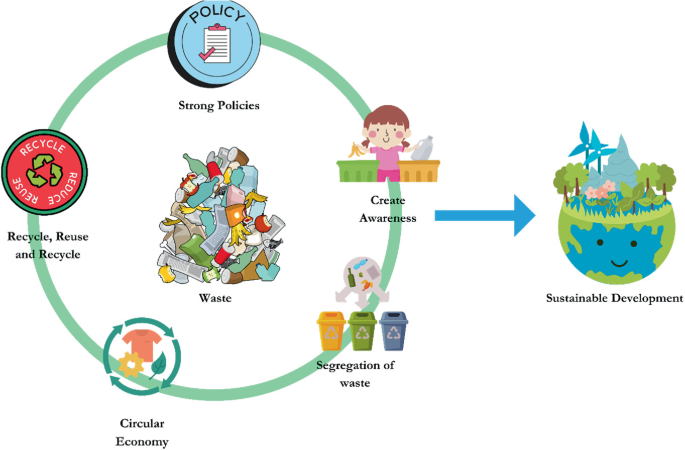The Facts About Reclaim Waste Revealed
The Facts About Reclaim Waste Revealed
Blog Article
Reclaim Waste for Beginners
Table of ContentsFacts About Reclaim Waste RevealedThe 10-Second Trick For Reclaim Waste9 Simple Techniques For Reclaim WasteReclaim Waste - An OverviewThe Reclaim Waste Statements
Check out the types, incidents, and types of liquid waste. Domestic sewage waste describes the waste and products from a residential sewage-disposal tank. This sort of waste is created by humans in houses, institutions, and various other structures. This only consists of sewage-disposal tanks that have a drainpipe area. The proper administration and disposal of domestic sewer waste call for liquid waste to be transferred to a sewage therapy plant where the proper techniques and equipment are related to purify and dispose of waste.
Business waste frequently includes prospective risks, such as combustible materials or a blend of liquid and solid waste products, and calls for a more sophisticated and thorough disposal process. The disposal of business waste commonly involves the filtration of waste prior to transportation to ensure secure and correct disposal. Industrial waste is developed from by-products and overflow of industrial processes and production.
This kind of waste can not make use of the very same sewage management transportation or procedures as septic or business liquids. The commercial waste administration process calls for the inspection and screening of fluid waste before it undergoes the disposal procedure (liquid waste disposal). Drainage waste is the liquid waste that originates from runoff and excess stormwater in highly booming areas or cities
Drainage waste can create contamination and flooding otherwise dealt with correctly. Discover a lot more regarding sewer cleansing and waste monitoring. Ensuring appropriate waste management can protect against catastrophes and reduce environmental injury. Both people in household settings and professionals in business or manufacturing markets can take advantage of comprehending the processes and policies of fluid waste administration.
What Does Reclaim Waste Do?
Contact PROS Providers today to learn regarding our waste monitoring and disposal solutions and the appropriate ways to take care of the liquid waste you create.
(https://hearthis.at/leon-aube/set/reclaim-waste/)
Do you recognize what happens to your water when you end, purge the bathroom or drain the washing machine? No? Well, it deserves knowing. This so-called 'wastewater' is not only a crucial resource yet, after treatment, will certainly be launched to our land, rivers or the sea. Utilized water from commodes, showers, baths, kitchen area sinks, laundries and industrial processes is understood as wastewater.

water made use of to cool equipment or tidy plant and tools). Stormwater, a form of wastewater, is drainage that flows from farming and metropolitan locations such as roofs, parks, yards, roadways, courses and rain gutters right into stormwater drains pipes, after rainfall. Stormwater flows untreated straight to local creeks or rivers, at some point getting to the sea.
What Does Reclaim Waste Do?
In Queensland, many wastewater is dealt with at sewage therapy plants. Wastewater is delivered from residential or commercial sites via a system of sewers and pump stations, recognized as sewage reticulation, to a sewer treatment plant. City governments develop, preserve and operate most sewage therapy plants. Operators are accredited under the Environmental Defense Act 1994 to discharge cured wastewater at an acceptable ecological criterion into rivers.
The Division of Natural Resources advises local governments regarding handling, operating and preserving sewerage systems and treatment plants. In unsewered areas, city governments may call for homeowners to install individual or family sewage therapy systems to deal with domestic wastewater from toilets, cooking areas, shower rooms and laundries. The Division of Natural Resources authorises the use of household systems when they are verified to be reliable.
In some new neighborhoods, therapy of some stormwater to remove trash, sand and gravel has actually begun using gross toxin traps. Wastewater therapy takes place in four phases: Gets rid of strong issue.
Wastewater after that streams into big containers where solids resolve and are gotten rid of as sludge. Oil and residue are skimmed from the surface. Uses small living organisms referred to as micro-organisms to break down and remove staying liquified wastes and fine particles. Micro-organisms and wastes are integrated in the sludge. Gets rid of nitrogen and phosphorus nutrients that can trigger algal flowers in our rivers and threaten marine life.
Getting My Reclaim Waste To Work
Nutrient removal is not offered whatsoever sewage treatment plants due to the fact that it calls for pricey specialized equipment. It is becoming more common in Queensland. Clear liquid effluent created after treatment may still include disease-causing micro-organisms. If this effluent is released right into rivers such as rivers or the sea, the micro-organisms will eventually die out.

The majority of wastewater moves right into the sewage system. Under the Act, regional governments provide approvals and permits for eco appropriate tasks (Ages) entailing wastewater launches that could have a neighborhood effect.
The 10-Minute Rule for Reclaim Waste
Or else, samples are considered research laboratory evaluation. Typically several examinations are required to develop the levels of each of the different toxins visit this website such as oils, hefty metals and chemicals in water. Monitoring offers accurate info regarding water top quality and can validate that permit problems are being met. The information gotten through monitoring supplies the basis for making water quality choices.
Report this page